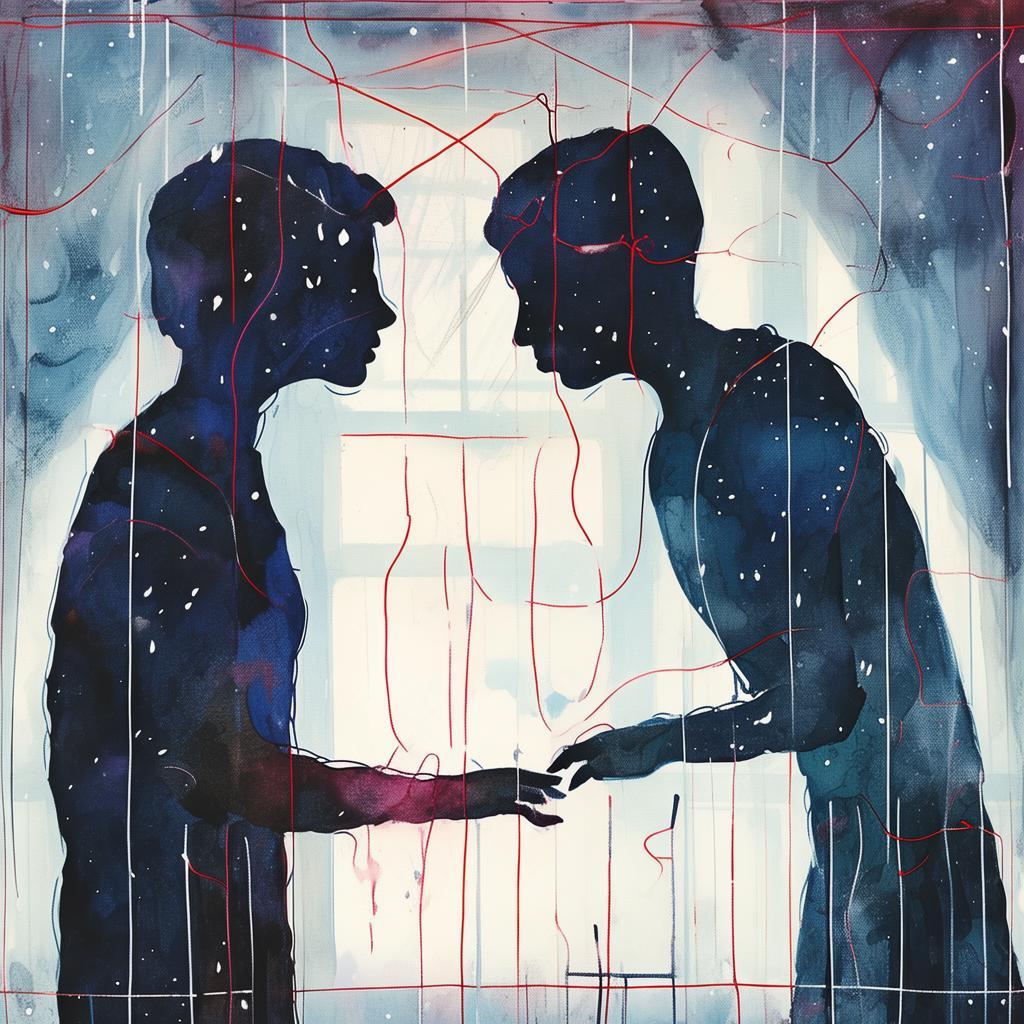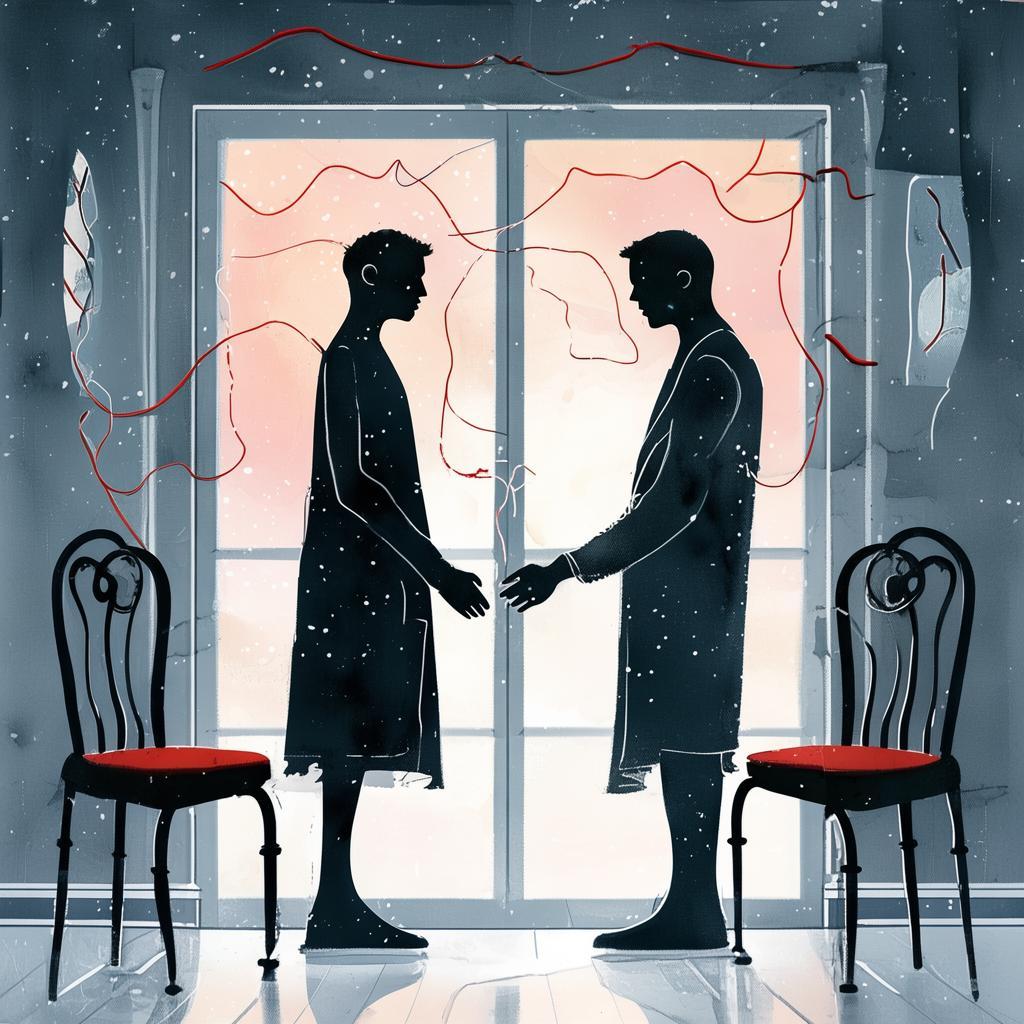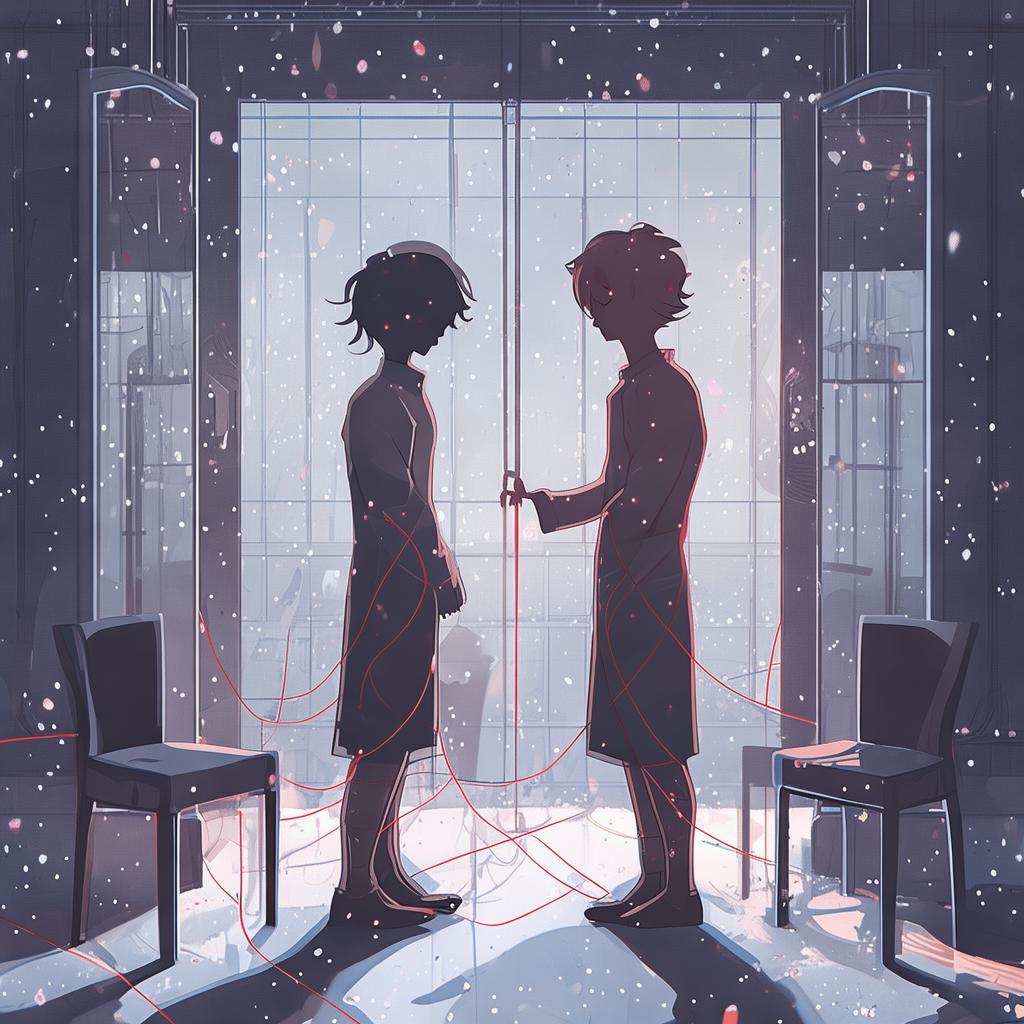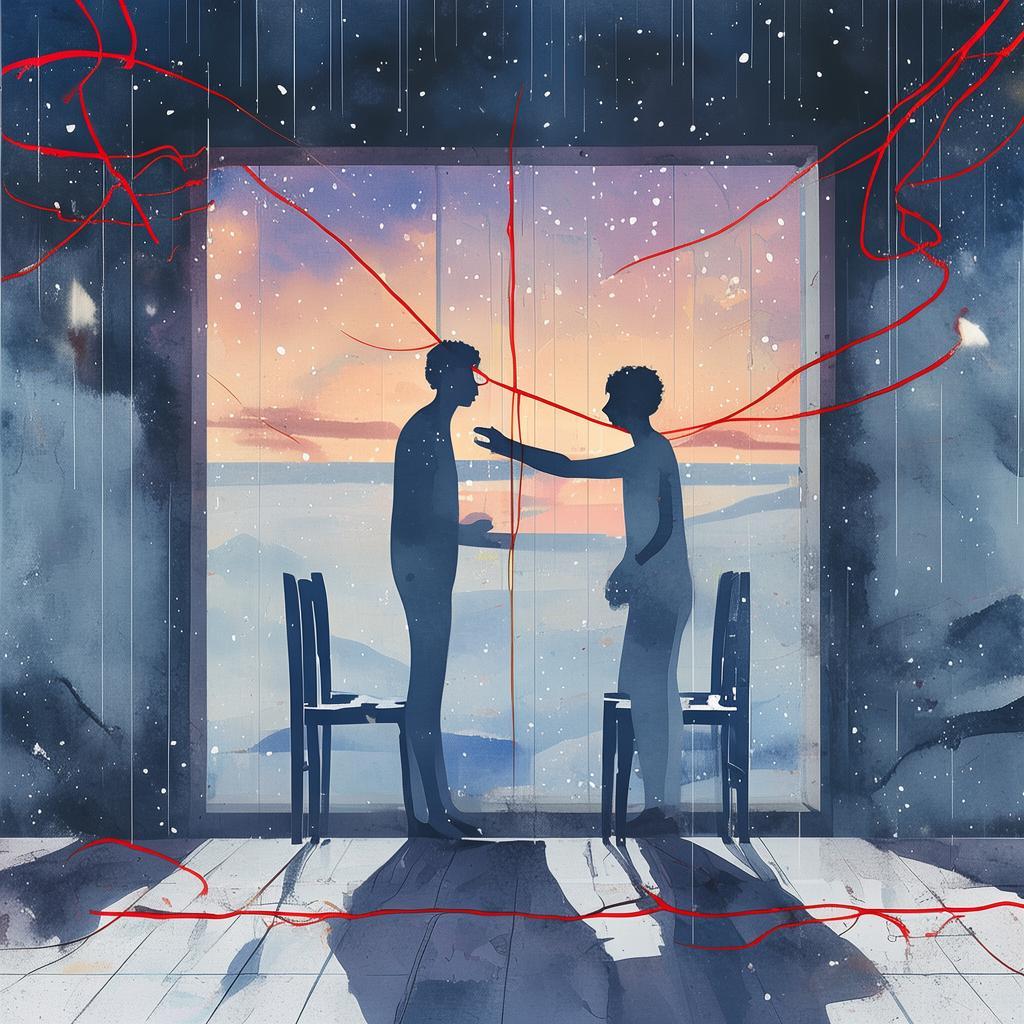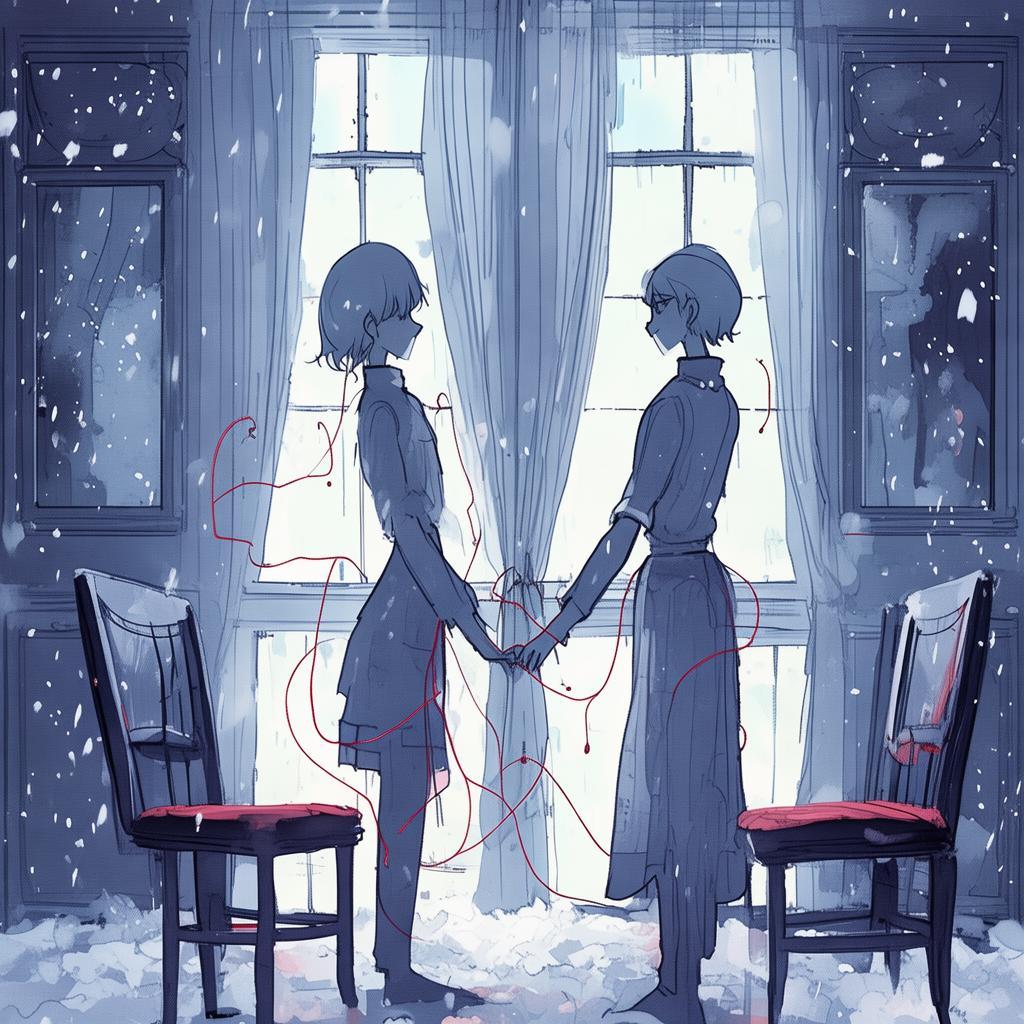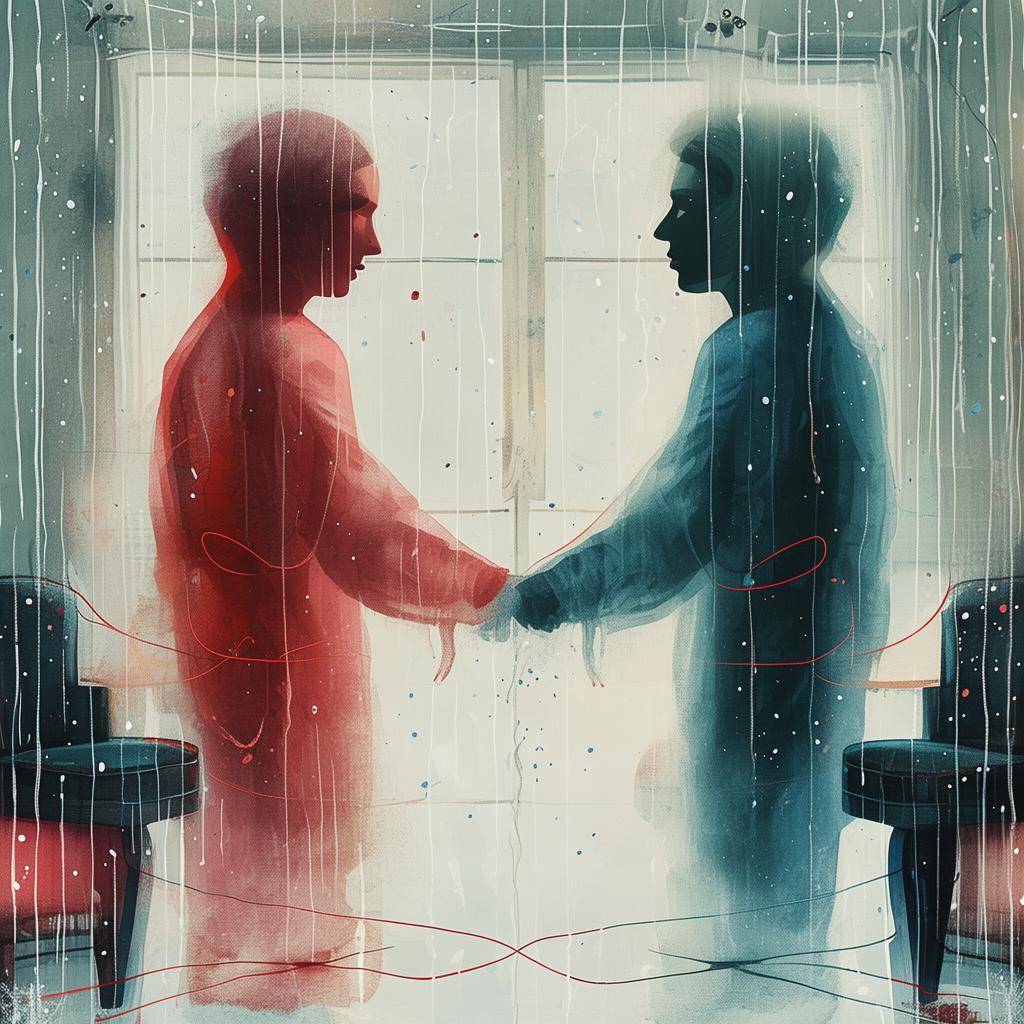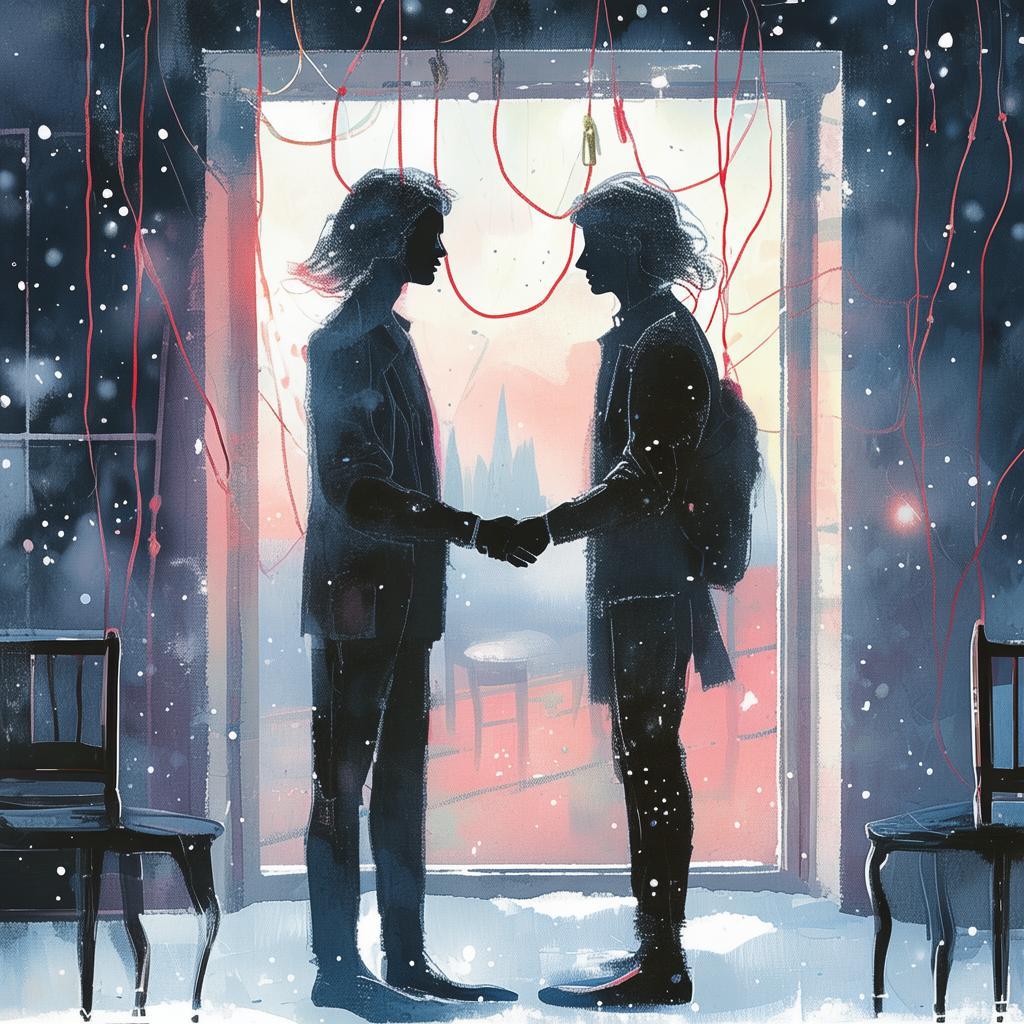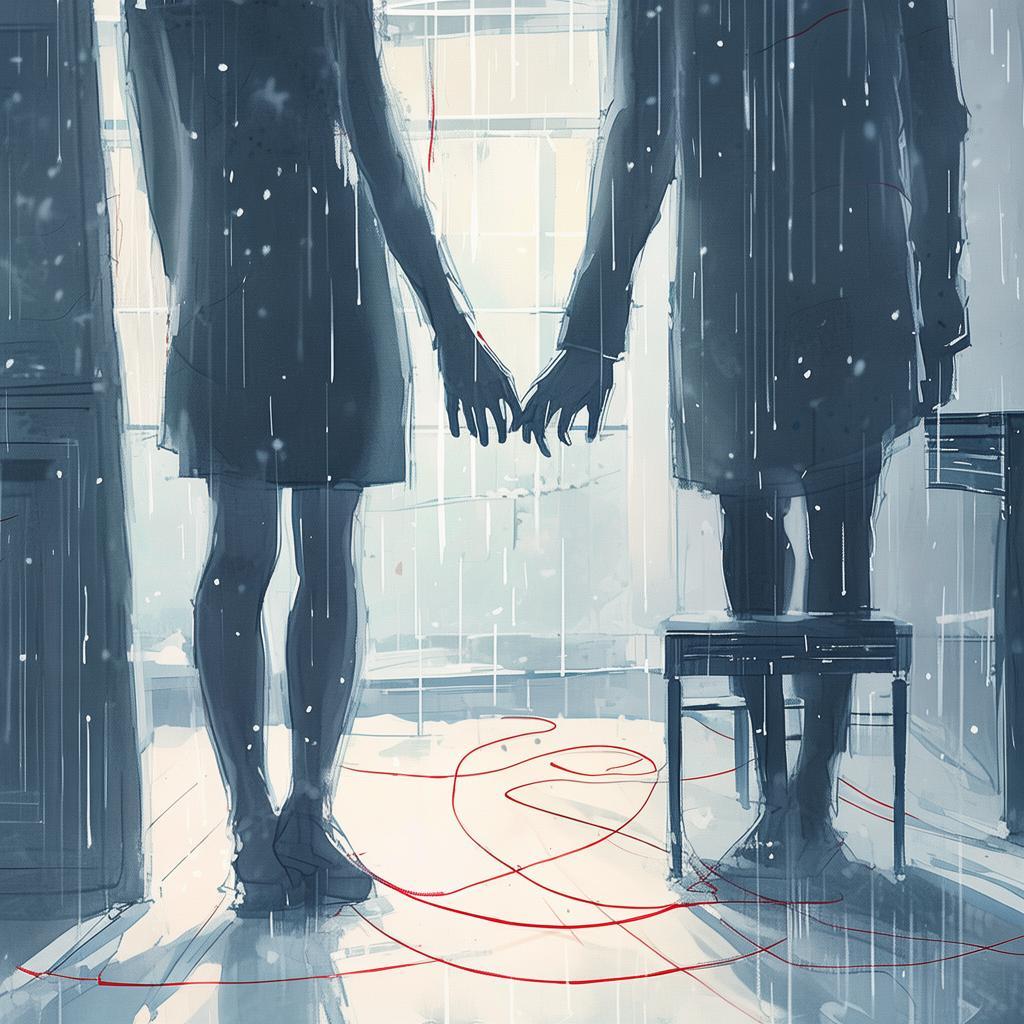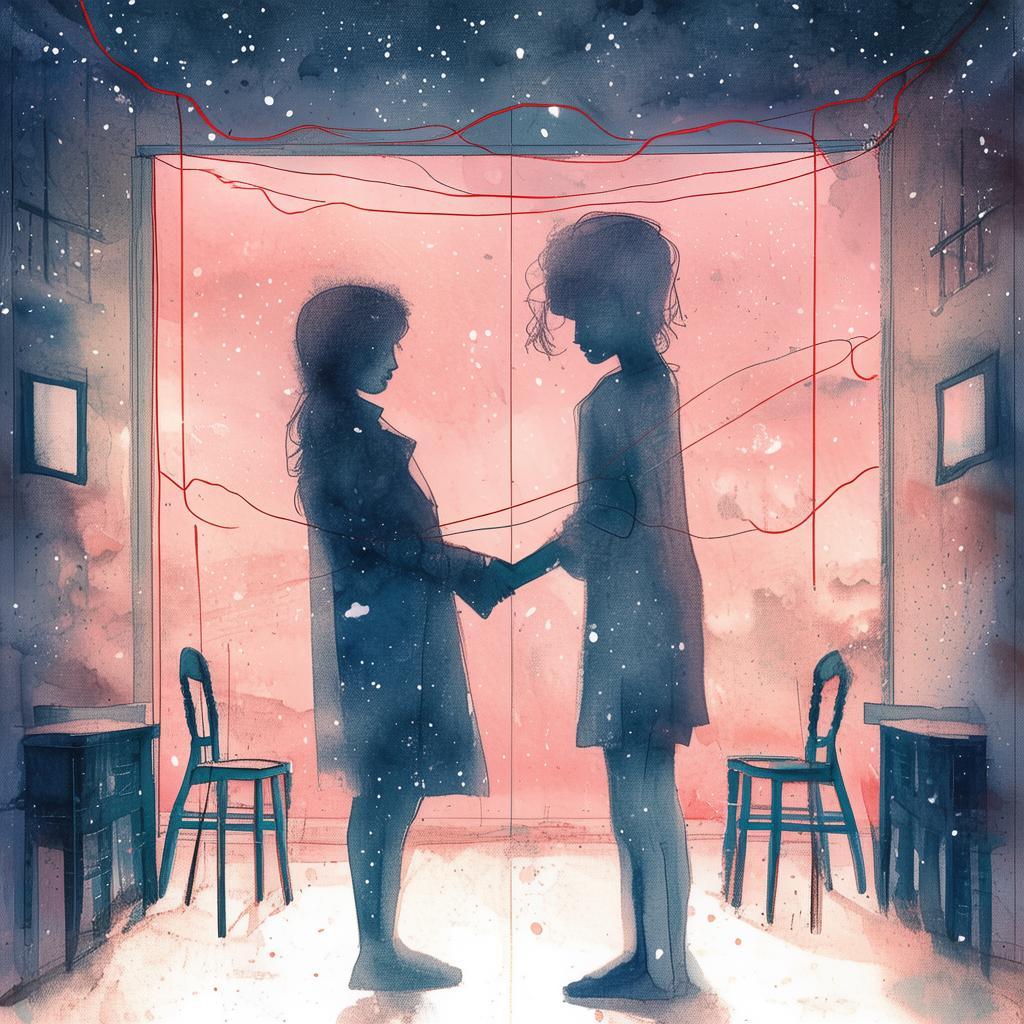Interstellar Echoes: The Heart of Two Worlds
The year was 2147, and the universe was a tapestry of countless parallel worlds, each with its own unique history and inhabitants. In one such world, a brilliant scientist named Aelion had discovered a way to travel between these dimensions. His creation, the Temporal Nexus, was a marvel of human ingenuity, capable of bending the very fabric of time.
In another world, a warrior named Lysander lived a life of solitude, his heart scarred by a betrayal that had cost him everything. His only solace was in the stars, which he watched from the highest peak of his mountain, searching for the one thing he couldn't have: love.
Aelion's experiments with the Temporal Nexus were not without their risks. One fateful night, as he was attempting to stabilize the machine, it malfunctioned, and he was transported to Lysander's world. The scientist found himself in the midst of a war-torn land, his knowledge of technology and science useless against the primitive warriors who sought to kill him.
Lysander, intrigued by the stranger's strange attire and eyes that seemed to carry a universe of secrets, offered Aelion sanctuary in his hidden cave. As they shared stories of their worlds, a deep bond formed between the two men, forged by a shared loneliness and a mutual understanding of loss.
However, their time together was fleeting. Aelion's creator, the enigmatic figure known only as The Architect, had no intention of letting the scientist leave the parallel universe. The Architect had a plan for Aelion, a plan that would pit the scientist against the very fabric of his own creation.
Lysander, torn between his loyalty to his people and his growing affection for Aelion, was forced to make a difficult choice. He knew that Aelion held the key to ending the war, but he also knew that The Architect would stop at nothing to keep him.
In a climactic battle, Lysander fought to protect Aelion, only to be betrayed by a member of his own tribe. He watched helplessly as Aelion was captured by The Architect's forces, and he was left with the burden of his own failure.
Aelion, now a prisoner, was forced to confront the truth about his own creation. He realized that The Architect was not interested in the advancement of humanity but in power. The Temporal Nexus was a weapon, and Aelion was its henchman.
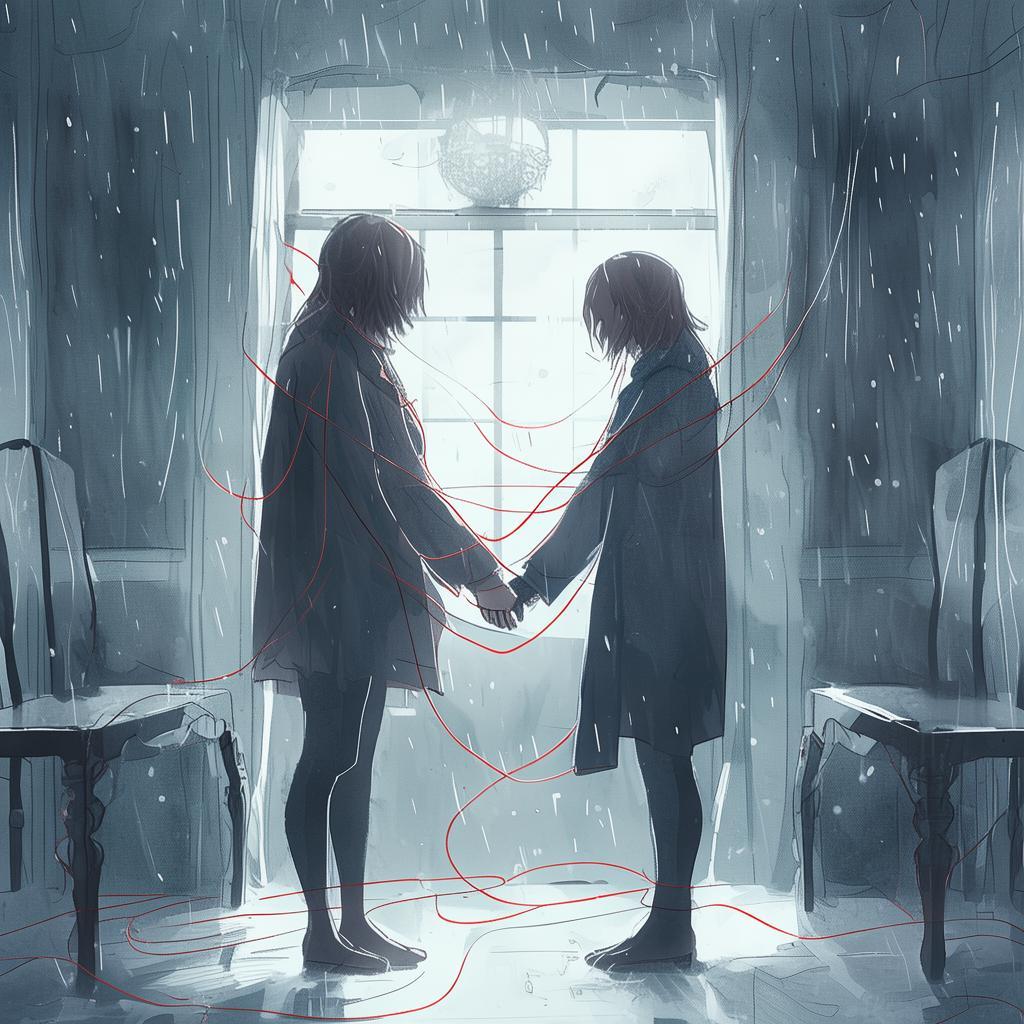
But Aelion's heart was not one to be easily manipulated. He found a way to escape, and with Lysander's help, they set out to destroy The Architect's plans. Along the way, they uncovered a shocking truth: The Architect was once Lysander's father, a man who had abandoned him to become a legend in the parallel universe.
As they faced their greatest challenge, Aelion and Lysander's bond was tested. They had to overcome their own fears and the darkness within themselves to save the worlds they loved.
In the end, it was Lysander's bravery and Aelion's love that brought down The Architect. The war ended, and peace was restored. But the true victory was in the hearts of the two men, who had found redemption and love in the most unlikely of places.
As they stood atop the mountain once more, gazing into the stars, Aelion whispered, "I never thought I would find my home in a world so far from mine. But here, with you, I've found my heart's true home."
Lysander smiled, his eyes reflecting the stars. "And here, with you, I've found my soul's true purpose."
Their story was one of love that transcended worlds, a testament to the power of the human heart to overcome even the most insurmountable odds.
✨ Original Statement ✨
All articles published on this website (including but not limited to text, images, videos, and other content) are original or authorized for reposting and are protected by relevant laws. Without the explicit written permission of this website, no individual or organization may copy, modify, repost, or use the content for commercial purposes.
If you need to quote or cooperate, please contact this site for authorization. We reserve the right to pursue legal responsibility for any unauthorized use.
Hereby declared.
